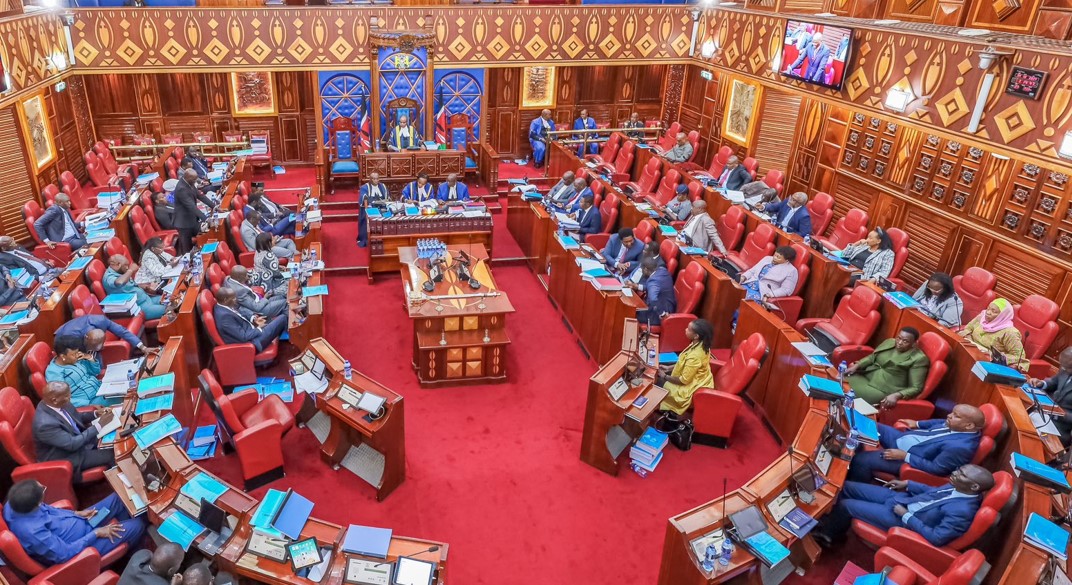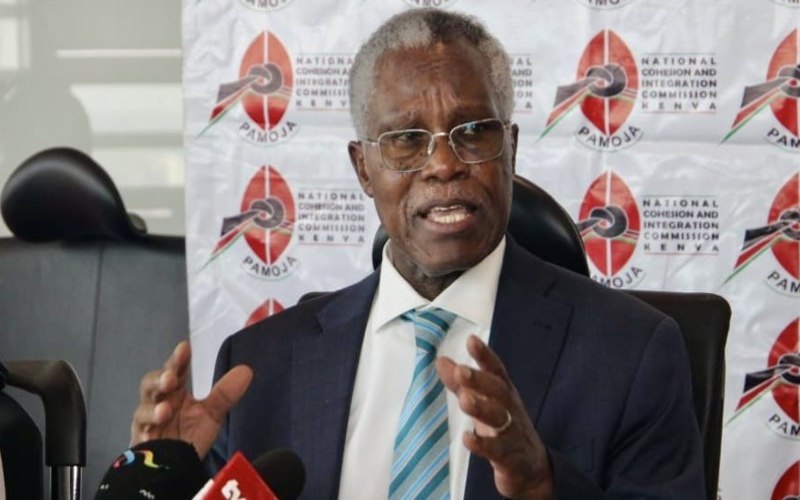Senate email system crashes as 200,000 Kenyans respond to term limits Bill

The proposed changes have sparked significant online mobilisation against the initiative led by Nandi Senator Samson Cherargei.
The Senate email system has crashed after receiving an astonishing 200,000 submissions in response to a Bill which proposes the extension of term limits for elected officials.
This follows the high number of views received from Kenyans for various bills. Among the proposals include the Constitution of Kenya (Amendment) Bill proposing to extend the term of office for the President and other elected officials from five to seven years
More To Read
- House Team rejects proposal to extend Senators' term
- Parliament urged to limit tenures of MPs, MCAs to two 5-year terms
- Over 99% of Kenyans oppose proposed extension of presidential term limits - Senate report
- Senate committee rejects Cherargei's Bill on leaders’ term limit extension
- CS Duale predicts Senators voting against Bill seeking to extend Ruto's term limit
- ICJ Kenya faults proposal to extend term limits for elected leaders
In a statement released on Friday, the Senate acknowledged the overwhelming response from the public, which caused the email system to reach its maximum capacity.
"Thank you for the overwhelming response to the Constitution of Kenya (Amendment) (No 2) Bill, 2024. Due to high volumes of submissions, our email system has temporarily experienced issues," the statement said.
To accommodate continued public input, the Senate has provided an alternative email address — [email protected] — for Kenyans to send their submissions.
The window for public participation regarding the controversial Bill closes on Friday, with a public participation forum scheduled to take place at the Kenyatta International Convention Centre (KICC).
Public participation for the Bill began on October 2, and a large turnout is anticipated at the KICC forum, where more Kenyans will have the opportunity to make oral and physical submissions.
The proposed changes have sparked significant online mobilisation against the initiative led by Nandi Senator Samson Cherargei.
The Bill proposes amendments to Articles 152, 156, 157, 166, 215, 228, 229, 245, and 250.
This will allocate the responsibility of approving the appointment of various state officers between the Senate and the National Assembly.
Under the new proposal, the Senate will vet and approve appointments for Cabinet secretaries, the Attorney General, the Director of Public Prosecutions, the Chief Justice, and judges, as well as for the chairperson of the Commission on Revenue Allocation, the Controller of Budget, the Auditor General, members of the Public Service Commission, the Inspector General of Police, and members of constitutional commissions.
Currently, these state officers are vetted solely by the National Assembly.
The Bill also amends Article 229 to ensure that the Auditor General submits annual expenditure estimates directly to Parliament for approval.
While the Senate gains new responsibilities, the National Assembly will maintain its role in vetting high commissioners, ambassadors, and diplomatic representatives.
The proposal designates the Senate as the appropriate forum for filing petitions to remove members of constitutional commissions or independent officeholders, a shift from the current process that relies on the National Assembly.
"The principal object of the Constitution of Kenya (Amendment) Bill, 2024, is to amend the Constitution to, among others, expand the mandate of the Senate," the proposed law reads.
Moreover, the Bill seeks to amend Article 58 to require involvement from both the Senate and the National Assembly when approving an extension of a state of emergency.
It emphasises that "a state of emergency affects the stability and functioning of the nation as a whole including county governments".
Furthermore, both Houses of Parliament must now approve the deployment of the Kenya Defence Forces in any part of the country, a process that is currently approved solely by the National Assembly.
The Bill also proposes that any legislation, except for money Bills, which must originate in the National Assembly can start in either House of Parliament.
Additionally, it aims to amend Article 181 of the Constitution regarding the procedures for the removal of a county governor or deputy governor.
Under this proposal, any challenge to a governor's impeachment by the Senate can only be addressed at the Supreme Court, which must resolve the case within 30 days.
Presently, such matters begin at the High Court.
The proposed legislation increases the percentage of the equitable share of revenue allocated to counties from the current 15 per cent to 40 per cent.
"The bill seeks to strengthen devolution by aligning the roles and functions of Parliament and all entities at the national and county levels of government in a manner that would promote the effective administration of the devolved system of governance," the proposed law reads.
However, the proposal has faced significant backlash, with critics describing it as impractical and "dead on arrival".
The ruling United Democratic Alliance (UDA) party, which Senator Cherargei belongs to, has already denounced the proposal.
UDA Secretary-General Hassan Omar labelled the proposal "repugnant and backward", stating, that "the Bill is incompatible with our policy and aspirations".
He urged party members involved with the Bill to reconsider their positions, describing it as a "juvenile political experimentation".
Top Stories Today















































